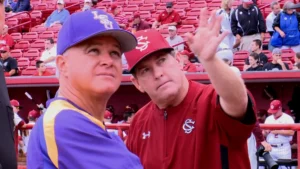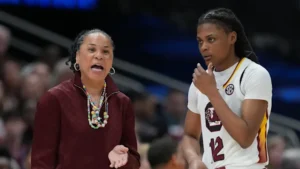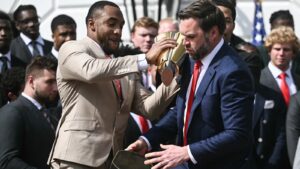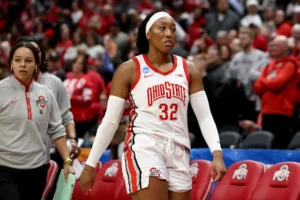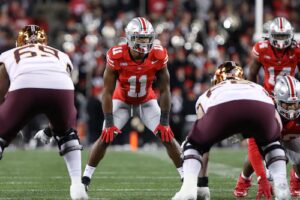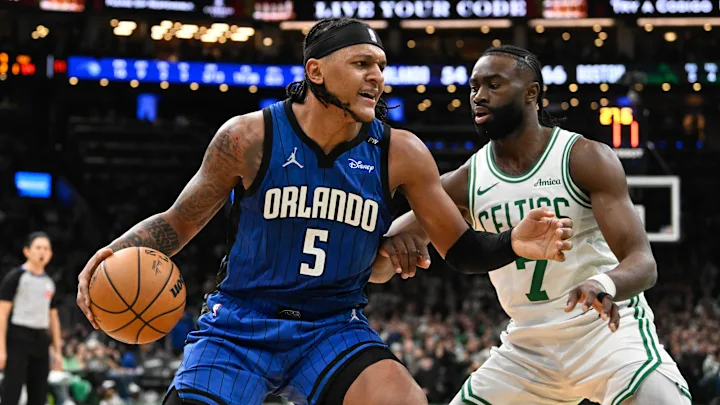
When discussing the Orlando Magic and the Boston Celtics, it’s easy to see two organizations that, at first glance, may seem quite different. The Celtics, one of the most storied franchises in NBA history, have a legacy defined by success, championships, and a tradition of excellence. On the other hand, the Magic, a relatively young franchise by comparison, have had a more mixed history, experiencing moments of brilliance but lacking the consistent success that has marked the Celtics’ identity.
But despite their differences in history, success, and market size, both teams share several core similarities that could be examined through their organizational philosophy, playing styles, and current trajectories. This article will explore how the Magic and Celtics compare in terms of team dynamics, stats, and organizational strategies, including a closer look at how each team’s approach has evolved over time.
Historical Background
Before delving into a statistical comparison, it’s important to examine the history of both teams. The Celtics, founded in 1946, are one of the most successful franchises in NBA history, winning 17 NBA championships—tied for the most in league history with the Los Angeles Lakers. Their legacy is built on a foundation of Hall of Fame players, such as Bill Russell, Larry Bird, and Paul Pierce, and a style of play that values teamwork, defense, and basketball IQ.
The Orlando Magic, established in 1989, are a much younger team. Despite the short history, the Magic have had some notable successes, including two NBA Finals appearances (in 1995 and 2009) and several standout players, such as Shaquille O’Neal, Dwight Howard, and Tracy McGrady. While they haven’t yet reached the sustained success of the Celtics, the Magic have carved out a niche in the league, known for developing star players and maintaining competitive teams during certain eras.
Team Identity and Culture
Boston Celtics:
The Celtics’ identity has always been deeply tied to their legacy of winning and their brand of basketball. Traditionally, the team has valued team play, with an emphasis on passing, movement without the ball, and an ability to adapt to various play styles. The franchise has maintained a strong focus on defense and a balanced offense, prioritizing the fundamentals of the game.
Throughout their history, the Celtics have often operated with a culture of excellence, led by players who buy into a system that emphasizes both collective responsibility and individual greatness. Players like Larry Bird epitomized this balance, being both an elite individual talent and an unselfish team player.
Orlando Magic:
In contrast, the Magic have often struggled to establish a consistent team identity, but they’ve had moments of brilliance, especially when they’ve had superstar players like Shaquille O’Neal and Dwight Howard anchoring their squads. While Orlando has had strong periods of defense, especially when Dwight Howard was at his peak, the team has sometimes leaned toward a more individual-centric approach, relying heavily on the play of its stars.
However, as the Magic have evolved, there has been an increasing focus on building a more cohesive team, with an emphasis on developing young talent and fostering a culture of growth. The hiring of coaches like Steve Clifford and the drafting of promising young stars in recent years, like Paolo Banchero, marks a shift toward long-term team building.
Comparing Playing Styles
While both teams have had periods of transition, their playing styles have often reflected their organizational philosophies.
Boston Celtics’ Playing Style:
-
Ball Movement and Spacing: The Celtics’ offense has traditionally relied on strong ball movement, working to get the best possible shot through passing and player movement. This is a hallmark of the team’s play under recent coaches like Brad Stevens, and it harkens back to the team’s historical style under Bill Russell and Larry Bird.
-
Defensive Identity: The Celtics have historically been a team that takes pride in defense, with an emphasis on team defense and individual matchups. Players like Paul Pierce, Kevin Garnett, and Rajon Rondo were central to Boston’s ability to stifle opposing offenses.
-
Versatile Scoring: The Celtics often rely on a balanced attack, with multiple players capable of scoring at various levels. Over the years, they’ve utilized scorers at almost every position, from point guards like Rajon Rondo to wings like Jayson Tatum and Jaylen Brown.
Orlando Magic’s Playing Style:
-
Post Play and Rebounding: Historically, the Magic have been a team that has emphasized strong interior play. During the era of Shaquille O’Neal and later Dwight Howard, the team built its offense around dominant post play and elite rebounding. Their defense also revolved around controlling the paint.
-
3-Point Shooting and Spacing: In more recent years, the Magic have adapted to the modern game’s emphasis on three-point shooting. The team has worked on spacing the floor better and allowing their wings and big men to stretch the floor, creating more open looks from beyond the arc.
-
Developing Youth: The Magic have been in a rebuilding phase, which has led to a focus on developing young players who can contribute in multiple areas of the game. With talents like Banchero and Franz Wagner, the Magic are looking to create an up-tempo offense while developing their defense.
Comparing Statistical Approaches
Let’s now dive deeper into the stats and numbers to better understand the similarities and differences between these two franchises.
-
Team Efficiency:
-
Boston Celtics (2023-2024 season):
-
Offensive Rating: 116.3 (4th in the league)
-
Defensive Rating: 110.2 (8th in the league)
-
The Celtics are known for their efficient offense, ranking among the top teams in scoring while maintaining solid defensive numbers. With players like Tatum, Brown, and Smart, they excel in both offense and defense.
-
-
Orlando Magic (2023-2024 season):
-
Offensive Rating: 110.5 (19th in the league)
-
Defensive Rating: 111.9 (16th in the league)
-
The Magic, while a work in progress, have been building on their defense and are improving in terms of overall efficiency. Their offensive rating is lower than that of the Celtics, but with the right development, the team is moving in the right direction.
-
-
-
Pace:
-
Boston Celtics: 98.2 (Middle of the pack)
-
Orlando Magic: 100.3 (Above average)
-
The Magic have a faster pace, which aligns with their focus on developing a more up-tempo offense. The Celtics, while capable of running, prefer a more controlled tempo that allows them to execute their structured offense.
-
-
Individual Stats:
-
Boston Celtics:
-
Jayson Tatum (2023-2024): 30.2 PPG, 8.1 RPG, 4.7 APG
-
Jaylen Brown (2023-2024): 25.3 PPG, 6.9 RPG, 3.5 APG
-
The Celtics’ stars are among the best in the league in terms of individual statistics. Tatum, in particular, has emerged as a top-tier player in the league, capable of leading both offensively and defensively.
-
-
Orlando Magic:
-
Paolo Banchero (2023-2024): 20.5 PPG, 7.3 RPG, 3.5 APG
-
Franz Wagner (2023-2024): 18.6 PPG, 4.3 RPG, 4.0 APG
-
Banchero and Wagner represent the future of the Magic. While they don’t yet match the star power of the Celtics’ Tatum and Brown, both players are showing strong potential to become cornerstones of the team.
-
-
-
Turnover and Assist Ratios:
-
Boston Celtics:
-
Assists per game: 26.5 (5th in the league)
-
Turnovers per game: 12.1 (10th in the league)
-
The Celtics excel in moving the ball and creating opportunities for their teammates, ranking near the top of the league in assists and controlling turnovers efficiently.
-
-
Orlando Magic:
-
Assists per game: 24.1 (15th in the league)
-
Turnovers per game: 13.4 (19th in the league)
-
The Magic have been improving their ball movement, but turnovers remain an issue. As they continue to develop, improving their assist-to-turnover ratio will be key.
-
-
Similarities and Differences
While the Boston Celtics and Orlando Magic are different in terms of their history, legacy, and current status, there are undeniable similarities between the two teams. Both franchises emphasize team play, albeit to varying degrees, and both have had success in building around superstar players—whether it’s Larry Bird in Boston or Dwight Howard in Orlando.
The Celtics’ established winning culture and experienced leadership provide them a steady path to success, whereas the Magic’s young talent and up-and-coming roster show promise for future growth. Statistically, the Celtics currently have the edge in almost every category, but the Magic’s trajectory is on the rise, especially with the development of players like Banchero and Wagner.
In conclusion, while the Magic and Celtics are still distinct teams with their own identities and strategies, they share a commitment to building competitive teams through both development and structure. Time will tell how Orlando’s rebuilding efforts will evolve, but in terms of team philosophy, the Magic and Celtics are definitely walking parallel paths—one rooted in championship history, the other in potential future greatness.

